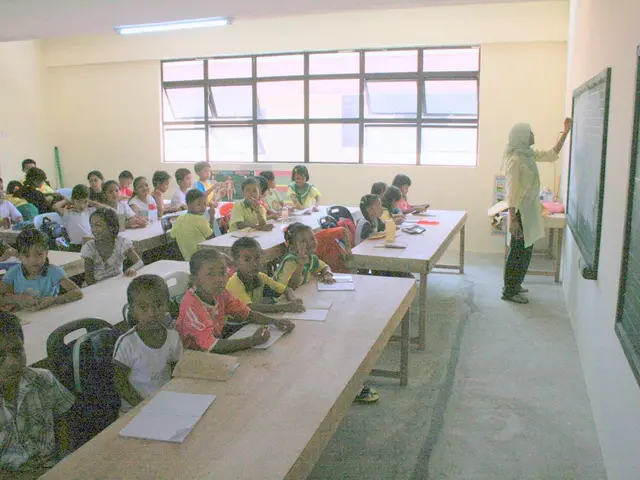Maternity pension under consideration by Merz administration: when will beneficiaries receive payment?
Frontpage: Pension Reform Update
Let's dive into the latest developments on the Merz government's pension reform plans! As part of its immediate program, the newly appointed Union and SPD coalition intends to relieve working mothers with a revised pension system. However, financing concerns might delay the timeline.
The Merz government announced its immediate program following its first coalition committee meeting on May 28. The four-page concept encompasses approximately 60 projects aimed at easing investments and invigorating the economy, which has been stagnant in recent years. Additionally, the government plans to innovate social policies, with a substantial pension reform being a key component of the coalition agreement.
Modernizing Mother's Pension
In today's society, the mother's pension has been a crucial support system since its implementation on January 1, 2014. Issued by the German Pension Insurance, the pension isn't an independent type but a supplement to the regular pension earned by eligible recipients.
The current system awards up to 2.5 (for children born before 1992) or 3 (for children born since 1992) child-rearing years per parent to their pension account. The number of child-rearing years increases for multiple children, regardless of their birthdate.
The Merz government seeks to address the existing division by introducing the Mother's Pension III. Parents who struggled to work or worked substantially less than usual during the early years of raising children will be on equal footing for pension points, regardless of their children's birth year. Once the reform is executed, all parents will obtain three pension points per child for their child-rearing periods.
Anticipated Impact & Estimated Timeline
Currently, one pension point equates to €39.32, but this amount will increase to €40.79 on July 1. With the Mother's Pension III in effect, parents of children born before 1992 could receive an additional €20.39 per month due to the increase from half a pension point to three pension points per child.
Although the Mother's Pension III is still under development and not yet law, the Merz government aims to implement this reform as soon as possible, with a tentative timeline of 2026. However, the specifics regarding the implementation of the Mother's Pension III, including a concrete financing plan, remain unclear at this stage.
Financing Challenge & Potential Solutions
The financing of the revised pension system is a significant concern for the Merz government. According to the German Pension Insurance, the crediting of child-rearing periods currently costs the federal government €25 billion per year, with expectations of this figure rising to around €27 billion by 2027.
If the Mother's Pension III is introduced as planned, additional costs of around €4.5 billion would be incurred, but the method it will be financed has yet to be disclosed. To secure the reform's implementation, the government may consider reallocating existing funds, utilizing new budget allocations, or implementing tax reforms to generate revenue for the increased pensions.
While the CSU adheres to quick implementation as one of its main campaign promises, Federal Finance Minister Lars Klingbeil (SPD) advocates prudence in financial decision-making. The approval of the Federal Ministry of Finance requires a solid financing plan.
In the meantime, pension-focused organizations like VdK demand that the reform be fully funded with tax funds. To learn more, check out our comprehensive pension guide!
Stay tuned for further updates on the Mother's Pension III and other pension reform developments. As details emerge, we'll keep you updated right here!
Sources:
- Tagesschau
- Rentenbescheid24.de
- Biallo.de
- Welt
Additional Information:
Economists have sounded alarms about potential economic implications of such policies, including the risk of inflation if not managed carefully. Nevertheless, increasing pensions for housewives could offer considerable benefits, such as increased financial security for caregivers and boosting family welfare. Lastly, funding the reform through budget reallocation, new budget allocations, or tax reforms is a viable option, though the specifics require careful planning and consideration.
- The Merz government's aim to equalize pension points for parents with the introduction of Mother's Pension III also encompasses health-and-wellness, as improved financial security for caregivers can positively impact their mental and physical well-being.
- Science and politics will intertwine as economists and policymakers collaborate to address the financing concerns of the Mother's Pension III, helping to create a more equitable system for women's health and parenting in Germany.








